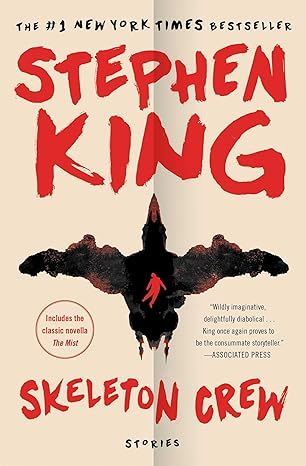Skeleton Crew: Stories
4.6
-
4,335 ratings
The #1 New York Times bestseller and winner of the 1986 Locus Award for Best Collection, Skeleton Crew is “Stephen King at his best” (The Denver Post)—a terrifying, mesmerizing collection of stories from the outer limits of one of the greatest imaginations of our time.
“Wildly imaginative, delightfully diabolical…King once again proves to be the consummate storyteller” (The Associated Press).
A supermarket becomes the place where humanity makes its last stand against destruction. A trip to the attic becomes a journey to hell. A woman driving a Jaguar finds a scary shortcut to paradise. An idyllic lake harbors a bottomless evil. And a desert island is the scene of the most terrifying struggle for survival ever waged. This “wonderfully gruesome” collection (The New York Times Book Review) includes:
- “The Mist”
- “Here There Be Tygers”
- “The Monkey”
- “Cain Rose Up”
- “Mrs. Todd’s Shortcut”
- “The Jaunt”
- “The Wedding Gig”
- “Paranoid: A Chant”
- “The Raft” - “Word Processor of the Gods”
- “The Man Who Would Not Shake Hands”
- “Beachworld”
- “The Reaper’s Image”
- “Nona”
- “For Owen”
- “Survivor Type”
- “Uncle Otto’s Truck”
- “Morning Deliveries (Milkman No. 1)”
- “Big Wheels: a Tale of the Laundry Game (Milkman No. 2)”
- “Gramma”
- “The Ballad of the Flexible Bullet”
- “The Reach”
King is best known for his iconic, immersive long novels, but he is also a master of the short story, and this is a magnificent collection.
Kindle
$11.99
Available instantly
Audiobook
$0.00
with membership trial
Library Binding
$37.40
Paperback
$12.66
Ships from
Amazon.com
Payment
Secure transaction
ISBN-10
1501143506
ISBN-13
978-1501143502
Print length
672 pages
Language
English
Publisher
Scribner
Publication date
December 05, 2016
Dimensions
5.5 x 1.8 x 8.38 inches
Item weight
1.3 pounds
Popular Highlights in this book
The horrors of the Inquisition are nothing compared to the fates your mind can imagine for your loved ones.
Highlighted by 287 Kindle readers
Nothing in nature is that even; man is the inventor of straight edges.
Highlighted by 199 Kindle readers
You either ate the world or the world ate you and it was okay either way.
Highlighted by 181 Kindle readers
Product details
ASIN :
B018ER7JUY
File size :
8573 KB
Text-to-speech :
Enabled
Screen reader :
Supported
Enhanced typesetting :
Enabled
X-Ray :
Not Enabled
Word wise :
Enabled
Editorial Reviews
“Wonderfully gruesome…Don’t turn your back on this book.” — The New York Times Book Review
“Stephen King at his best.” — The Denver Post
“Wildly imaginative, delightfully diabolical…King once again proves to be the consummate storyteller.” — The Associated Press
“Stunning, ingenious…Stephen King at the very top of his talent.” — New York Daily News
Sample
VII. The First Night.
Mr. McVey had worked in Bridgton cutting meat ever since I was twelve or thirteen, and I had no idea what his first name was or his age might be. He had set up a gas grill under one of the small exhaust fans—the fans were still now, but presumably they still gave some ventilation—and by 6:30 P.M. the smell of cooking chicken filled the market. Bud Brown didn’t object. It might have been shock, but more likely he had recognized the fact that his fresh meat and poultry wasn’t getting any fresher. The chicken smelled good, but not many people wanted to eat. Mr. McVey, small and spare and neat in his whites, cooked the chicken nevertheless and laid the pieces two by two on paper plates and lined them up cafeteria-style on top of the meat counter.
Mrs. Turman brought Billy and me each a plate, garnished with helpings of deli potato salad. I ate as best I could, but Billy would not even pick at his.
“You got to eat, big guy,” I said.
“I’m not hungry,” he said, putting the plate aside.
“You can’t get big and strong if you don’t—”
Mrs. Turman, sitting slightly behind Billy, shook her head at me.
“Okay,” I said. “Go get a peach and eat it, at least. ’Kay?”
“What if Mr. Brown says something?”
“If he says something, you come back and tell me.”
“Okay, Dad.”
He walked away slowly. He seemed to have shrunk somehow. It hurt my heart to see him walk that way. Mr. McVey went on cooking chicken, apparently not minding that only a few people were eating it, happy in the act of cooking. As I think I have said, there are all ways of handling a thing like this. You wouldn’t think it would be so, but it is. The mind is a monkey.
Mrs. Turman and I sat halfway up the patent-medicines aisle. People were sitting in little groups all over the store. No one except Mrs. Carmody was sitting alone; even Myron and his buddy Jim were together—they were both passed out by the beer cooler.
Six new men were watching the loopholes. One of them was Ollie, gnawing a leg of chicken and drinking a beer. The mop-handle torches leaned beside each of the watchposts, a can of charcoal lighter fluid next to each… but I don’t think anyone really believed in the torches the way they had before. Not after that low and terribly vital grunting sound, not after the chewed and blood-soaked clothesline. If whatever was out there decided it wanted us, it was going to have us. It, or they.
“How bad will it be tonight?” Mrs. Turman asked. Her voice was calm, but her eyes were sick and scared.
“Hattie, I just don’t know.”
“You let me keep Billy as much as you can. I’m… Davey, I think I’m in mortal terror.” She uttered a dry laugh. “Yes, I believe that’s what it is. But if I have Billy, I’ll be all right. I’ll be all right for him.”
Her eyes were glistening. I leaned over and patted her shoulder.
“I’m so worried about Alan,” she said. “He’s dead, Davey. In my heart, I’m sure he’s dead.”
“No, Hattie. You don’t know any such thing.”
“But I feel it’s true. Don’t you feel anything about Stephanie? Don’t you at least have a… a feeling?”
“No,” I said, lying through my teeth.
A strangled sound came from her throat and she clapped a hand to her mouth. Her glasses reflected back the dim, murky light.
“Billy’s coming back,” I murmured.
He was eating a peach. Hattie Turman patted the floor beside her and said that when he was done she would show him how to make a little man out of the peach pit and some thread. Billy smiled at her wanly, and Mrs. Turman smiled back.
At 8:00 P.M. six new men went on at the loopholes and Ollie came over to where I was sitting. “Where’s Billy?”
“With Mrs. Turman, up back,” I said. “They’re doing crafts. They’ve run through peach-pit men and shopping-bag masks and apple dolls and now Mr. McVey is showing him how to make pipe-cleaner men.”
Ollie took a long drink of beer and said, “Things are moving around out there.”
I looked at him sharply. He looked back levelly.
“I’m not drunk,” he said. “I’ve been trying but haven’t been able to make it. I wish I could, David.”
“What do you mean, things are moving around out there?”
“I can’t say for sure. I asked Walter, and he said he had the same feeling, that parts of the mist would go darker for a minute—sometimes just a little smudge, sometimes a big dark place, like a bruise. Then it would fade back to gray. And the stuff is swirling around. Even Arnie Simms said he felt like something was going on out there, and Arnie’s almost as blind as a bat.”
“What about the others?”
“They’re all out-of-staters, strangers to me,” Ollie said. “I didn’t ask any of them.”
“How sure are you that you weren’t just seeing things?”
“Sure,” he said. He nodded toward Mrs. Carmody, who was sitting by herself at the end of the aisle. None of it had hurt her appetite any; there was a graveyard of chicken bones on her plate. She was drinking either blood or V-8 juice. “I think she was right about one thing,” Ollie said. “We’ll find out. When it gets dark, we’ll find out.”
But we didn’t have to wait until dark. When it came, Billy saw very little of it, because Mrs. Turman kept him up back. Ollie was still sitting with me when one of the men up front gave out a shriek and staggered back from his post, pinwheeling his arms. It was approaching eight-thirty; outside the pearl-white mist had darkened to the dull slaty color of a November twilight.
Something had landed on the glass outside one of the loopholes.
“Oh my Jesus!” the man who had been watching there screamed. “Let me out! Let me out of this!”
He tore around in a rambling circle, his eyes starting from his face, a thin lick of saliva at one corner of his mouth glimmering in the deepening shadows. Then he took off straight up the far aisle past the frozen-food cases.
There were answering cries. Some people ran toward the front to see what had happened. Many others retreated toward the back, not caring and not wanting to see whatever was crawling on the glass out there.
I started down toward the loophole, Ollie by my side. His hand was in the pocket that held Mrs. Dumfries’ gun. Now one of the other watchers let out a cry—not so much of fear as disgust.
Ollie and I slipped through one of the checkout lanes. Now I could see what had frightened the guy from his post. I couldn’t tell what it was, but I could see it. It looked like one of the minor creatures in a Bosch painting—one of his hellacious murals. There was something almost horribly comic about it, too, because it also looked a little like one of those strange creations of vinyl and plastic you can buy for $1.89 to spring on your friends… in fact, exactly the sort of thing Norton had accused me of planting in the storage area.
It was maybe two feet long, segmented, the pinkish color of burned flesh that has healed over. Bulbous eyes peered in two different directions at once from the ends of short, limber stalks. It clung to the window on fat sucker-pads. From the opposite end there protruded something that was either a sexual organ or a stinger. And from its back there sprouted oversized, membranous wings, like the wings of a housefly. They were moving very slowly as Ollie and I approached the glass.
At the loophole to the left of us, where the man had made the disgusted cawing sound, three of the things were crawling on the glass. They moved sluggishly across it, leaving sticky snail trails behind them. Their eyes—if that is what they were—joggled on the end of the finger-thick stalks. The biggest was maybe four feet long. At times they crawled right over each other.
“Look at those goddam things,” Tom Smalley said in a sickened voice. He was standing at the loophole on our right. I didn’t reply. The bugs were all over the loopholes now, which meant they were probably crawling all over the building… like maggots on a piece of meat. It wasn’t a pleasant image, and I could feel what chicken I had managed to eat now wanting to come up.
Someone was sobbing. Mrs. Carmody was screaming about abominations from within the earth. Someone told her gruffly that she’d shut up if she knew what was good for her. Same old shit.
Ollie took Mrs. Dumfries’ gun from his pocket and I grabbed his arm. “Don’t be crazy.”
He shook free. “I know what I’m doing,” he said.
He tapped the barrel of the gun on the window, his face set in a nearly masklike expression of distaste. The speed of the creatures’ wings increased until they were only a blur—if you hadn’t known, you might have believed they weren’t winged creatures at all. Then they simply flew away.
Some of the others saw what Ollie had done and got the idea. They used the mop handles to tap on the windows. The things flew away, but came right back. Apparently they had no more brains than your average housefly, either. The near-panic dissolved in a babble of conversation. I heard someone asking someone else what he thought those things would do if they landed on you. That was a question I had no interest in seeing answered.
The tapping on the windows began to die away. Ollie turned toward me and started to say something, but before he could do more than open his mouth, something came out of the fog and snatched one of the crawling things off the glass. I think I screamed. I’m not sure.
It was a flying thing. Beyond that I could not have said for sure. The fog appeared to darken in exactly the way Ollie had described, only the dark smutch didn’t fade away; it solidified into something with flapping, leathery wings, an albino-white body, and reddish eyes. It thudded into the glass hard enough to make it shiver. Its beak opened. It scooped the pink thing in and was gone. The whole incident took no more than five seconds. I had a bare final impression of the pink thing wiggling and flapping as it went down the hatch, the way a small fish will wiggle and flap in the beak of a seagull.
Now there was another thud, and yet another. People began screaming again, and there was a stampede toward the back of the store. Then there was a more piercing scream, one of pain, and Ollie said, “Oh my God, that old lady fell down and they just ran over her.”
He ran back through the checkout aisle. I turned to follow, and then I saw something that stopped me dead where I was standing.
High up and to my right, one of the lawn-food bags was sliding slowly backward. Tom Smalley was right under it, staring out into the mist through his loophole.
Another of the pink bugs landed on the thick plate glass of the loophole where Ollie and I had been standing. One of the flying things swooped down and grabbed it. The old woman who had been trampled went on screaming in a shrill, cracked voice.
That bag. That sliding bag.
“Smalley!” I shouted. “Look out! Heads up!”
In the general confusion, he never heard me. The bag teetered, then fell. It struck him squarely on the head. He went down hard, catching his jaw on the shelf that ran below the show window.
One of the albino flying things was squirming its way through the jagged hole in the glass. I could hear the soft scraping sound that it made, now that some of the screaming had stopped. Its red eyes glittered in its triangular head, which was slightly cocked to one side. A heavy, hooked beak opened and closed rapaciously. It looked a bit like the paintings of pterodactyls you may have seen in the dinosaur books, more like something out of a lunatic’s nightmare.
I grabbed one of the torches and slam-dunked it into a can of charcoal lighter fluid, tipping it over and spilling a pool of the stuff across the floor.
The flying creature paused on top of the lawn-food bags, glaring around, shifting slowly and malignantly from one taloned foot to the other. It was a stupid creature, I am quite sure of that. Twice it tried to spread its wings, which struck the walls and then folded themselves over its hunched back like the wings of a griffin. The third time it tried, it lost its balance and fell clumsily from its perch, still trying to spread its wings. It landed on Tom Smalley’s back. One flex of its claws and Tom’s shirt ripped wide open. Blood began to flow.
I was there, less than three feet away. My torch was dripping lighter fluid. I was emotionally pumped up to kill it if I could… and then realized I had no matches to light it with. I had used the last one lighting a cigar for Mr. McVey an hour ago.
The place was in pandemonium now. People had seen the thing roosting on Smalley’s back, something no one in the world had seen before. It darted its head forward at a questing angle, and tore a chunk of meat from the back of Smalley’s neck.
I was getting ready to use the torch as a bludgeon when the cloth wrapped head of it suddenly blazed alight. Dan Miller was there, holding a Zippo lighter with a Marine emblem on it. His face was as harsh as a rock with horror and fury.
“Kill it,” he said hoarsely. “Kill it if you can.” Standing beside him was Ollie. He had Mrs. Dumfries’ .38 in his hand, but he had no clear shot.
The thing spread its wings and flapped them once—apparently not to fly away but to secure a better hold on its prey—and then its leathery-white, membranous wings enfolded poor Smalley’s entire upper body. Then the sounds came—mortal tearing sounds that I cannot bear to describe in any detail.
All of this happened in bare seconds. Then I thrust my torch at the thing. There was the sensation of striking something with no more real substance than a box kite. The next moment the entire creature was blazing. It made a screeching sound and its wings spread; its head jerked and its reddish eyes rolled with what I most sincerely hope was great agony. It took off with a sound like linen bedsheets flapping on a clothesline in a stiff spring breeze. It uttered that rusty shrieking sound again.
Heads turned up to follow its flaming, dying course. I think that nothing in the entire business stands in my memory so strongly as that bird-thing blazing a zigzagging course above the aisles of the Federal Supermarket, dropping charred and smoking bits of itself here and there. It finally crashed into the spaghetti sauces, splattering Ragú and Prince and Prima Salsa everywhere like gouts of blood. It was little more than ash and bone. The smell of its burning was high and sickening. And underlying it like a counterpoint was the thin and acrid stench of the mist, eddying in through the broken place in the glass.
For a moment there was utter silence. We were united in the black wonder of that brightly flaming deathflight. Then someone howled. Others screamed. And from somewhere in the back I could hear my son crying.
A hand grabbed me. It was Bud Brown. His eyes were bulging from their sockets. His lips were drawn back from his false teeth in a snarl. “One of those other things,” he said, and pointed.
One of the bugs had come in through the hole and it now perched on a lawn-food bag, housefly wings buzzing—you could hear them; it sounded like a cheap department-store electric fan—eyes bulging from their stalks. Its pink and noxiously plump body was aspirating rapidly.
I moved toward it. My torch was guttering but not yet out. But Mrs. Reppler, the third-grade teacher, beat me to it. She was maybe fifty-five, maybe sixty, rope-thin. Her body had a tough, dried-out look that always makes me think of beef jerky.
She had a can of Raid in each hand like some crazy gunslinger in an existential comedy. She uttered a snarl of anger that would have done credit to a caveman splitting the skull of an enemy. Holding the pressure cans out at the full length of each arm, she pressed the buttons. A thick spray of insect-killer coated the thing. It went into throes of agony, twisting and turning crazily and at last falling from the bags, bouncing off the body of Tom Smalley—who was dead beyond any doubt or question—and finally landing on the floor. Its wings buzzed madly, but they weren’t taking it anywhere; they were too heavily coated with Raid. A few moments later the wings slowed, then stopped. It was dead.
You could hear people crying now. And moaning. The old lady who had been trampled was moaning. And you could hear laughter. The laughter of the damned. Mrs. Reppler stood over her kill, her thin chest rising and falling rapidly.
Hatlen and Miller had found one of those dollies that the stockboys use to trundle cases of things around the store, and together they heaved it atop the lawn-food bags, blocking off the wedge-shaped hole in the glass. As a temporary measure, it was a good one.
Amanda Dumfries came forward like a sleepwalker. In one hand she held a plastic floor bucket. In the other she held a whisk broom, still done up in its see-through wrapping. She bent, her eyes still wide and blank, and swept the dead pink thing—bug, slug, whatever it was—into the bucket. You could hear the crackle of the wrapping on the whisk broom as it brushed the floor. She walked over to the OUT door. There were none of the bugs on it. She opened it a little way and threw the bucket out. It landed on its side and rolled back and forth in ever-decreasing arcs. One of the pink things buzzed out of the night, landed on the floor pail, and began to crawl over it.
Amanda burst into tears. I walked over and put an arm around her shoulders.
Read more
About the authors
Stephen King
Stephen King is the author of more than fifty books, all of them worldwide bestsellers. His first crime thriller featuring Bill Hodges, MR MERCEDES, won the Edgar Award for best novel and was shortlisted for the CWA Gold Dagger Award. Both MR MERCEDES and END OF WATCH received the Goodreads Choice Award for the Best Mystery and Thriller of 2014 and 2016 respectively.
King co-wrote the bestselling novel Sleeping Beauties with his son Owen King, and many of King's books have been turned into celebrated films and television series including The Shawshank Redemption, Gerald's Game and It.
King was the recipient of America's prestigious 2014 National Medal of Arts and the 2003 National Book Foundation Medal for distinguished contribution to American Letters. In 2007 he also won the Grand Master Award from the Mystery Writers of America. He lives with his wife Tabitha King in Maine.
Read more
Reviews
Customer reviews
4.6 out of 5
4,335 global ratings
M. George
5
A lot of variety but always 100% Stephen King
Reviewed in the United States on January 6, 2013
Verified Purchase
Reading Skeleton Crew slowly for over a year now, using it as a bridge between various other novels and such to help with my SK addiction, I can say Skeleton Crew serves as possibly the best sampling of Stephen King considering the diversity and length it gives, all for under $10. The collection features a full novel, nineteen short stories, and even a couple poems to mix things up. One can see that this really does include so much of the best from SK when so many of these stories later ended up being adapted into TV show episodes or even movies.
Some notables include...
The headlining feature of Skeleton Crew is certainly The Mist, which stands as one of his fan favorites, and even though it's shorter then most of his novels, he's able to still deliver on a great balance between tension, action, and character-development better than most of his 700+page novels. This story alone almost makes it worth the price, yet it only takes up a quarter of the collection.
As many other reviewers note, Cain Rose Up sticks out awkwardly as a too simple and too violent story of a school shooting. It feels like it should actually be the end of a much more complex and interesting story (like Rage).
The Jaunt is probably my favorite out of the whole collection for it's delivery on a interesting idea, and the resulting payoff at the end, it's also cool to read one from SK that delves into some fun sci-fi aspects. This whole story can be read online for free, so if nothing else, at least do that.
The premise for Word Processor of the Gods is awesome enough, a homemade computer that is able to create anything into existence that is typed into it. However, I feel that this could've been made into something much bigger and better then it is, yet still stands as a good read.
Nona felt the most like a SK story with a near excessive amount of characters that all felt like they should be part of a bigger story (which is why most of them later show up in other stories set in the same town). It still serves as a good read, especially if recently reading Body or Hearts in Atlantis.
The Ballad of the Flexible Bullet takes some time to build up speed into a great disturbing yet subtlety comedic story. It's one of the longer and last stories in the collection and along with The Reach it's a great note to end on.
Overall, I would recommend this collection for any SK fan, as it features many of his most popular and memorable works (especially in terms of works that are not full novels) might even be the best place for a newcomer of Stephen King to start.
Read more
27 people found this helpful
Bob Jackson
5
When He Could Actually Write
Reviewed in the United States on October 15, 2020
Verified Purchase
Look, Kings' early to mid work is amazing. Nobody, and I mean nobody, could convey horror and evil from the pages of a book directly into the souls of readers. This is exactly why I read his older works such as Skeleton Crew over and over again. The stories are original, often shocking and written with an expertise that makes them so damned entertaining. Somewhere along the way King lost it (or as some have suggested passed the torch to someone else) and became an example of why some artists should quit while they're still ahead. Does he have any idea how bad his more recent writing is? Do his younger new readers? I don't know. Still I am ever thankful to rediscover books like Skeleton Crew, Night Shift, Different Seasons and his other masterpieces like The Stand, etc. King has proven that his brilliance was not limited to the horror genre with Delores Claiborne and The Shawshank Redemption which I believe was published as a novella. What is most irking is that not only has he lost such an amazing talent but has lost it to such an extent that one has to question if this is even the same person who brought us all those fantastic stories from his earlier writing days. Some say it was his becoming sober and getting clean from drugs that caused such a plummet in his creativity. Who knows? Still for his own sake I wish King would just stop and maybe take up something else like calligraphy or coin collecting. Too harsh? I don't think so. His long time faithful readers deserve better.
Read more
41 people found this helpful
Leo 69
5
Joy of reading
Reviewed in the United States on September 12, 2024
Verified Purchase
Purchased as a Christmas gift for my daughter, she loves to read.
summer dehner
5
Good book
Reviewed in the United States on March 18, 2024
Verified Purchase
Got for my boyfriend for Christmas per his wish list. He said he likes that it is short stories.
edward
5
over the edge
Reviewed in the United States on June 1, 2024
Verified Purchase
As always stephen king delivers, and he keeps your greater interest of what next?
2 people found this helpful
Top Stephen King titles
View all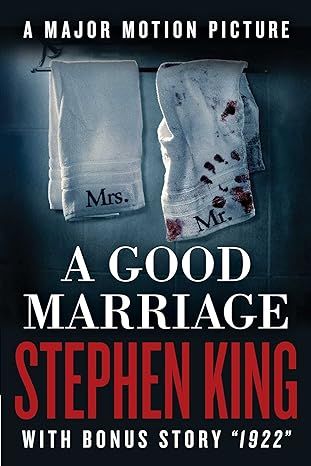
A Good Marriage
4.1
-
5,995
$4.99
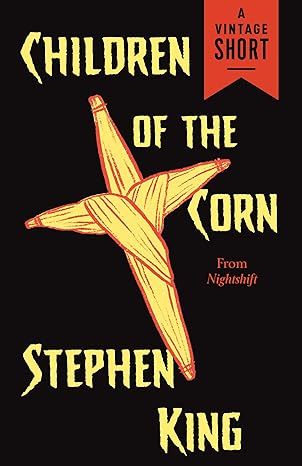
Children of the Corn (Kindle Single) (A Vintage Short)
4.3
-
1,084
$0.99
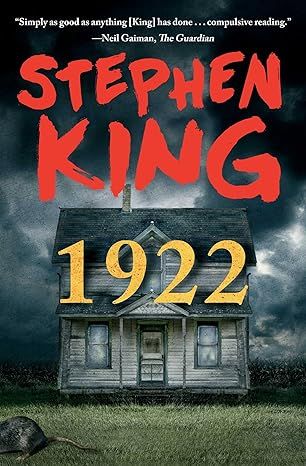
1922
4.6
-
6,082
$7.99
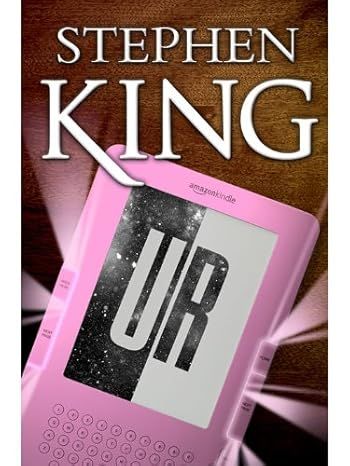
UR
4.3
-
6,140
$3.99
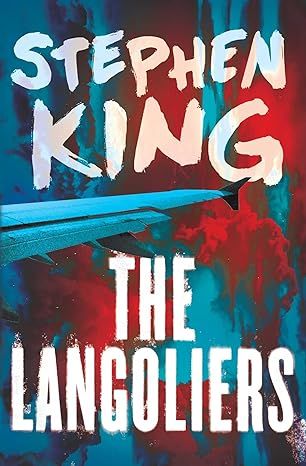
The Langoliers
4.6
-
1,014
$6.49
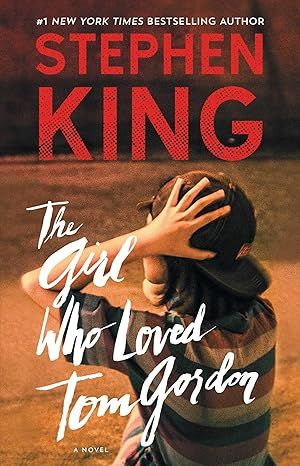
The Girl Who Loved Tom Gordon: A Novel
4.5
-
4,774
$1.17
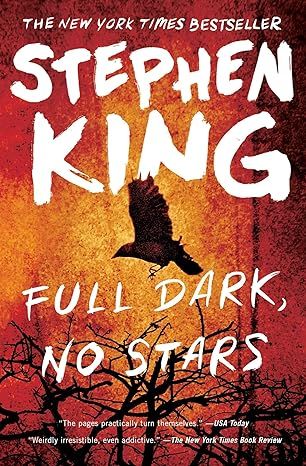
Full Dark, No Stars
4.6
-
6,762
$5.00

Gwendy's Button Box: A Novella (Gwendy's Button Box Trilogy Book 1)
4.5
-
21,335
$3.88
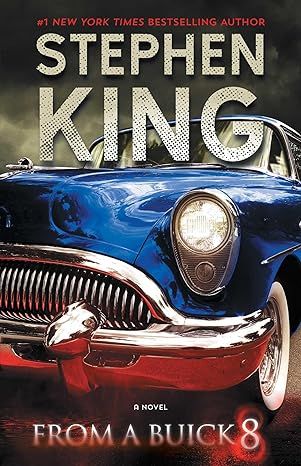
From a Buick 8: A Novel
4.3
-
2,174
$11.99
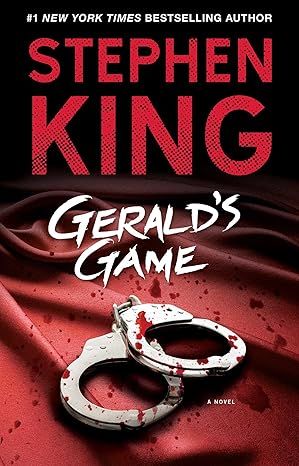
Gerald's Game
4.2
-
3,838
$1.97
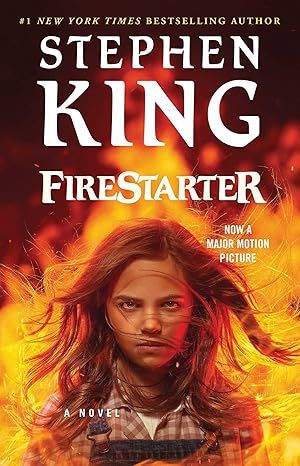
Firestarter
4.6
-
5,489
$9.99
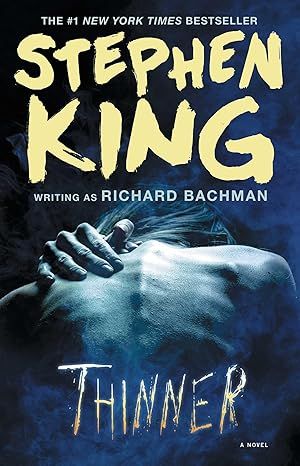
Thinner
4.5
-
3,107
$2.50
Similar Books
Best Sellers
View all
The Tuscan Child
4.2
-
100,022
$8.39

The Thursday Murder Club: A Novel (A Thursday Murder Club Mystery)
4.3
-
155,575
$6.33

Sapiens: A Brief History of Humankind
4.6
-
140,302
$13.49

The Butterfly Garden (The Collector, 1)
4.3
-
88,556
$9.59

Things We Hide from the Light (Knockemout Series, 2)
4.4
-
94,890
$11.66

The Last Thing He Told Me: A Novel
4.3
-
154,085
$2.99

The Perfect Marriage: A Completely Gripping Psychological Suspense
4.3
-
143,196
$9.47

The Coworker
4.1
-
80,003
$13.48

First Lie Wins: A Novel (Random House Large Print)
4.3
-
54,062
$14.99

Mile High (Windy City Series Book 1)
4.4
-
59,745
$16.19

Layla
4.2
-
107,613
$8.99

The Locked Door
4.4
-
94,673
$8.53
